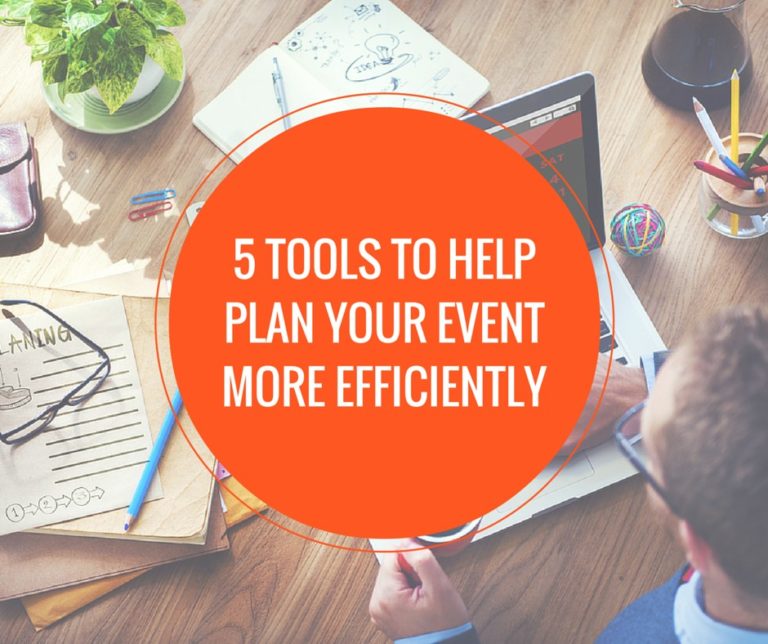The right event sponsors can help you create the best attendee experience possible. They can lend you credibility, increase your budget, and give you exposure within their own communities. It can be intimidating to reach out to businesses but they often welcome the opportunities you provide.
Maximizing event sponsorship requires cultivating these relationships with care, respect, and strategy. Here’s how to set yourself up for success. Get event sponsors and keep them happy.
The Role Event Sponsors Play
Event sponsorship packages vary widely, and different sponsors gravitate toward different levels of involvement and investment.
There are several reasons to seek event sponsorships. Depending on their role, they can allow you to:
- Improve your event with discounted products or a larger event budget
- Boost your credibility with an established partner whose mission aligns with yours
- Amplify your own promotional efforts by reaching their customer base
- Access resources and information otherwise unavailable
- Increase your pool of event volunteers by offering employees service opportunities
In return, they’ll expect visibility during the event and (possibly) in promotions before or after it. Your event should also reflect their brand values and live up to brand standards.
How Do You Build Relationships With Potential Event Sponsors?
If you’re interested in getting sponsors for your event, you must nurture potential partners with connection, clarity, and collaboration. Engage them personally, outline event sponsorship packages, and open yourself to genuine, reciprocal dialogue.
Create an Emotional Connection With Your Corporate Sponsors
Do your research before you connect. Why are you contacting this business? What would make the individuals in charge want to get involved with your event?
According to expert nonprofit leaders, there’s no substitute for an authentic, natural fit between your mission and the potential sponsor’s brand values. Learn all about your prospects, and don’t try to force an affinity that doesn’t exist.
Use your personal connections, as well. A lot of successful event sponsorship partners stem from social relationships. If you don’t know the people you’re contacting, find an “in.” Shared interests or backgrounds can make that initial interaction go more smoothly.
Identify How Your Event Goals Align With the Sponsorship Opportunity
Your event sponsorship proposal should outline your event goals and let interested parties know exactly how their contribution will enable them. Do you have a lot of interest but limited seating? Are you looking to add particular features to enhance the event experience? Do you want to advertise on a particular channel to generate more ticket sales?
Companies want to know what you’ll do with their money. It gives them confidence in your management and shows your professionalism. It also allows them to participate in your goals and successes. They can point to something at the event and have the satisfaction of saying, “I did that.”
Consider the opportunity from the other side as well. What will they gain? Instead of spouting off phrases such as “brand visibility” and “image enhancement,” be concise. What kind of ROI can they expect, and in what form? Just remember that what you promise, you have to deliver.
Generate Sponsorship Ideas With Your Sponsors
While you want to come into the exchange with ideas, engage event sponsors and find out what they really want. Maybe they don’t really care about posting their brand around your venue. They might prefer to be featured on your website or on your social media accounts.
They may have ideas about what to provide, as well. A local restaurant might rather offer food than money, giving attendees the chance to sample their offerings. A hotel could offer your keynote speaker free lodging. And so on.
Particularly in the current event climate, sponsors want to partner with creative event organizers ready to think outside the box. Even if they choose to pass on this round, they may have ideas for upcoming events.
How To Manage Your Event Sponsorships
Once they’ve signed on, you need to work just as hard to support the relationship as you did to create it. Offer them gratitude, and show them the results of their investment.
Share Event Sponsorship Packages With Your Sponsors
Provide potential sponsors with information on all event sponsorship levels, clearly outlining the required contributions for each tier and what they can expect in return. While you don’t want to push higher event sponsorship packages too hard, you do want to give people a chance to surprise you for the better.
That said, don’t just send a form letter. Include a personalized message, and be sure to incorporate any ideas that stemmed from your collective brainstorming.
Outline the Return on Investment After the Event
Before the pitch, you should have reminded them of the benefits of being a corporate sponsor. All sponsors can expect brand visibility, but depending on the partnership, they could also gain:
- Insight into their customer base and possible niche markets
- The opportunity to try or launch a new product
- Fresh content they can distribute through their own channels
- In-person lead-generation
- A positive ROI in the form of website hits, conversions, or social mentions
Be sure to discuss their goals as part of your event strategy. What matters most to them?
After the event, it’s time to share the numbers. Has your event brought them the business you promised?
Frame the Positive ROI for Event Sponsors
If you’re a nonprofit, some of your sponsors may be businesses interested in charitable giving to your cause. These people expect a less concrete ROI, but still expect to benefit from the association.
Event marketers face a tougher challenge. Business owners want to invest their marketing dollars in the highest-performing channels. It isn’t enough for them to break even from an event. That’s an indication that those dollars could have been better spent elsewhere. They need a strong, positive ROI.
Here are a few ideas on how you can show them one:
- Leverage your event website. Collect data on page views and the referred traffic you can pass along.
- Track on-site sales and attendance numbers. That’s business they wouldn’t have received otherwise.
- Allow them to offer digital or printed coupons at the event. You can calculate the distribution of downloads, and with their cooperation, you can track redemption as well.
- Share the results of promotional materials. Maintain a list of content that includes them and share the results. Provide them with numbers on the reach and engagement of social posts or the click-through rate of Google Ads.
- Offer a sign-up list for their email newsletter — either online or on-site — and help them collect new subscribers.
Show them your investment in their business objectives as well as your own.
Remember That Thank You Goes a Long Way
Never underestimate the power of gratitude. Thank your event sponsors both publicly and privately. You appreciate their contributions, so let them know it — preferably more than once.
Thank them publicly:
- On your website
- In your event program
- In your newsletter
- On your social accounts
- In event speeches or introductions
Before and during the event, thank them for making the event possible. After, thank them for making it a success.
Thank them privately:
- In-person, during a lull in the event
- In a handwritten note or personal email
Not a big writer? Feel free to borrow from appropriate thank-you letter templates. Just adapt it to your purpose and personality.
In general, make sponsors feel good about the experience of working with you. They’ll be more likely to do it again.
Understand Your Sponsors’ Target Audience for Future Events and Opportunities
Take advantage of the opportunity to learn about your sponsors’ customer base as you work with them. Who is their target audience, and where does it intersect with your community?
Identify the type of event most likely to resonate with their base. For example, a trendy athletic-wear shop might prefer to sponsor a virtual fitness challenge than a read-a-thon. But not everything has to be such a perfect fit. Because their base is relatively young, they’d probably get more mileage from sponsoring a free, local band concert than from sponsoring a performance by a touring opera troupe.
Event marketers should pitch upcoming events as a perfect match between sponsor and opportunity. Be creative but never disingenuous. A surprising opportunity is exciting. A flagrant mismatch is, at best, ineffective and, at worst, insulting.
Create Valuable Experiences for Event Attendees Through Financial Sponsors
You want to provide a top-notch attendee experience. The best events require the best sponsors, the businesses that want to be full partners in your success. Once you’ve landed the sponsor, manage that relationship by focusing on value — the value you provide and how much you value them.
Finding and communicating with sponsors is easier than ever with Events.com. Our sponsorship tools provide you with access to our sponsor database, help with inventory and pricing for event sponsorship materials, and the ability to create professional event sponsorship proposals. Our activation calendar also highlights milestones along the way, keeping everything on track.
If you’re interested in generating more sponsorship revenue in less time, check out Events.com sponsorship tools.






